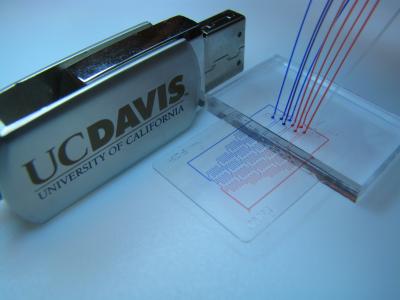New research from the University of Calgary's Faculty of Medicine shows that doctors can make a stroke diagnosis using an iPhone application with the same accuracy as a diagnosis at a medical computer workstation. This technology can be particularly useful in rural medical settings. This allows for real-time access to specialists such as neurologists, regardless of where the physicians and patients are located.
BIO-TECHer
Biomedical Technology and their maker
Monday, June 6, 2011
Sunday, May 29, 2011
Versatile Ultra-Low Power Biomedical Signal Processor
At the 2011 International Solid-State Circuit Conference (ISSCC2011), imec, Holst Centre and NXP present a versatile ultra-low power biomedical signal processor, CoolBioTM, meeting the requirements of future wearable biomedical sensor systems. The biomedical signal processor consumes only 13pJ/cycle when running a complex ECG (electrocardiogram) algorithm at 1MHz and 0.4V operating voltage. This C-programmable chip is voltage and performance scalable supporting a frequency range of 1MHz up to 100MHz with an operating voltage from 0.4 to 1.2V.
Subscribe to:
Posts (Atom)





